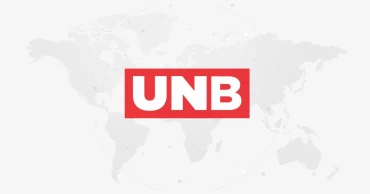skin cancer
14-year-old wins award for developing soap to treat skin cancer
A 14-year-old school student has been termed "America's top young scientist" for creating a bar of soap that may be effective in the treatment of melanoma, a skin cancer that affects roughly 100,000 individuals in the United States each year and kills approximately 8,000.
Heman Bekele, a ninth-grader from Annandale, Virginia, was selected over nine other finalists for the award, reports The Guardian.
Also read: The next big advance in cancer treatment could be a vaccine
“Curing cancer, one bar of soap at a time,” he said in his submission. “I have always been interested in biology and technology, and this challenge gave me the perfect platform to showcase my ideas,” he added.
He submitted his soap idea, "skin cancer treating soap," produced from ingredients that may reawaken dendritic cells that defend human skin, allowing them to combat cancer cells. Bekele stated in a video for the 3M Young Scientist Challenge that he believes "that young minds can make a positive impact on the world," the report said.
Also read: New AI model can accurately diagnose cancer: Study
Bekele's inspiration stemmed from his childhood in Ethiopia, where he saw people continually labouring under the blazing sun. “I wanted to make my idea something that not only was great in terms of science but also could be accessible to as many people as possible.”
Skin cancer is quite common, according to the American Cancer Society, with melanoma accounting for only 1 percent, yet causing the bulk of skin cancer deaths, the report also said.
Also read; Ancient viruses can help fight cancer, scientists say
According to the association, melanoma rates have been significantly increasing over the last few decades, particularly among women over 50, and it is more than 20 times more prevalent in white people than in black people. At the same time, owing to breakthroughs in therapy, melanoma death rates have decreased over the last decade.
After receiving the award, Bekele told the judging panel that he hoped the soap would become a "symbol of hope, accessibility, and a world where skin cancer treatment is within everyone's reach."
2 years ago
UN launches SunSmart Global UV app to help beat skin cancer
Scientific evidence shows that overexposure to ultraviolet (UV) radiation is the major cause of skin cancer.
To help people protect themselves adequately, a consortium of UN agencies Tuesday launched a new app that can help anyone, anywhere, determine the safe amount of time to stay outdoors, soaking up the rays.
The SunSmart Global UV app is the collective brainchild of the World Health Organization (WHO), the International Labour Organization (ILO), the World Meteorological Organization (WMO) and the UN Environment Programme (UNEP).
"The app provides five-day UV and weather forecasts at searchable locations," Carla Drysdale, spokesperson for the WHO, said.
"It highlights time slots when sun protection is required and aims to help people around the world know when to use sun protection, to reduce the global burden of skin cancer and UV-related eye damage."
Developed by Australia's Cancer Council Victoria and the Australian Radiation Protection and Nuclear Safety Agency, the app is based on the UV index, which indicates the level of solar UV radiation at the earth's surface.
Read: UN launches $943 mn plan to ‘safeguard well-being, dignity’ of Rohingyas
The index uses a scale of 1 (or lower) to 11 and higher (or extreme). The higher the index value, the greater the potential for damage to the skin and eyes, and the less time it takes for harm to occur.
"Globally, it's estimated that over 1.5 million cases of skin cancer, that's melanoma and non-melanoma combined, were diagnosed globally in 2020," Carla said.
"During the same period, more than 120,000 people across the world lost their lives to this highly preventable disease."
Much of UV-related illness and death can be avoided through a set of simple prevention measures such as limiting time in the midday sun, seeking shade when UV rays are most intense, and wearing protective clothing, hats and sunglasses, and the use of sunscreen.
"The app combines meteorological, environmental and health expertise to help protect people from the sun both at work and in their leisure," said WMO Secretary-General Professor Petteri Tallas. "It is unique because it uses data from country-level weather and UV measuring stations to provide accurate and location-specific UV Index readings."
Vera Paquete-Perdigão, director of the ILO's Governance and Tripartism Department, said the app was "a useful tool to assist companies and workers in identifying hazardous work and planning safety and health measures."
Meg Seki, executive secretary of UNEP's Ozone Secretariat, noted that the highly effective Montreal Protocol protects the stratospheric ozone layer which, in turn, protects human health and the environment by blocking out most of the sun's harmful ultraviolet radiation.
"Skin cancer can result from overexposure to the sun, so everyone must remain vigilant and ensure they protect themselves adequately with hats and sunscreen. The SunSmart app is a fantastic UV monitoring tool, and I would encourage everyone to use it."
"It's now the time of the year when UV radiation is at its maximum in Europe, in the northern hemisphere," according to WMO spokesperson Clare Nullis.
"This is because of the position of the sun in the sky. Other factors that influence the amount of UV include the ground, clouds, and the ozone layers. So, all of these elements are being added into this app."
3 years ago


